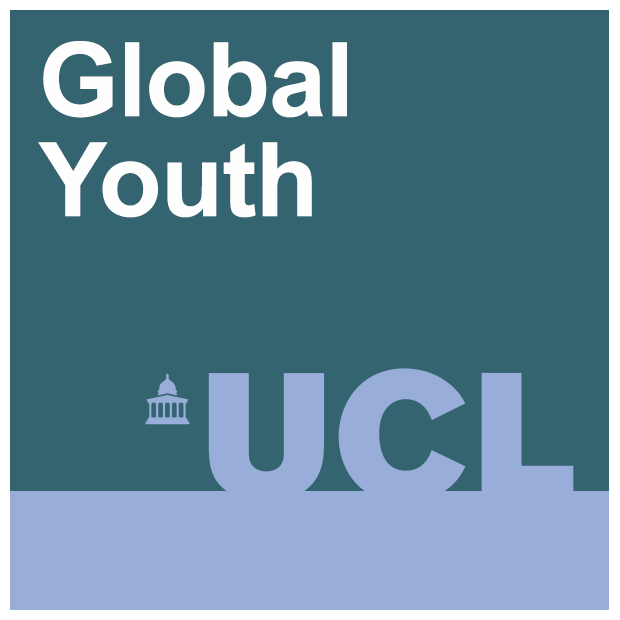Coastal Youth Life Chances project: Information for Participants
By UCL Global Youth, on 9 August 2023
What is this project about? The project, organised by researchers at University College London (UCL), is about young people in coastal towns. We’re asking young people aged 15-20 what it’s like to grow up in your town today, and people aged 60+ what it was like growing up here in the past. Some of the topics we are interested in are: What do you think about your town? What kinds of opportunities does your town offer young people? What are the challenges? What would you change about your town for young people?
Using the answers you provide, we will consider whether growing up in a coastal town can impact on young people’s life chances; that is, their likelihood of having good outcomes in adulthood in terms of education, work, housing, and health and wellbeing.
Who is funding this project? This project is funded by the UKRI Economic and Social Research Council (ESRC). This project has been approved by the UCL Institute of Education Ethics Committee (REC 1553).
How can I take part in the project? If you agree to take part in the study, we will arrange a date/time for you to take part in a group workshop and/or an interview. We will also invite you to share a photo with us that represents what it’s like to grow up in a coastal town. The interviews will last about 30 – 45 minutes and the group workshop will be 2 hours long. If you agree, we would like to record our conversation (audio only for interviews, video for group discussions). These recordings are only used to make sure that we have an accurate account of what you told us; they will not be seen by anyone outside of the research team.
Your participation is voluntary: this means you do not have to take part in this project if you don’t want to and you can stop participating in the project at any time. You don’t have to answer any questions or take part in any activities that make you uncomfortable; if you don’t like the question or the activity, we can move on or stop the interview. If you later want to stop participating in the project, you can withdraw at any time by contacting Sam Whewall (s.whewall@ucl.ac.uk) or Avril Keating (a.keating@ucl.ac.uk).
If I agree to take part, what will happen to the information I give you? The information you give us will be used for research purposes only. This means we will share the information with our UCL project colleagues and our project partners, the Museum of Youth Culture and the LivingMaps Network. The information you give us will then be combined with information we get from other people we speak to for this project, and then used to write reports, blogs, journal articles, books or create photo exhibitions about growing up in coastal towns. These publications will be available to the public and to policymakers.
All data will be stored securely on UCL servers, and your personal information will be stored separately. Any data we collect from you (e.g. photos or maps) will be kept for a maximum of 10 years and deleted by 31st December 2035 at the latest.
Is the information I give confidential? All the personal information you provide is treated confidentially in accordance with the UK Data Protection Act 2018. There is more information on the next page about what this means and how we keep this promise. In short, this means that we will not share your personal information with anyone outside of the project team. We will make sure that your answers will be stored securely on a computer and kept separate from any personal details you give us. The only exception to this is if you share information that raises concerns about your safety or someone else’s safety. If this happens, we will have to pass this on to an appropriate adult (e.g. a teacher at your school or a youth worker at your youth club).
Is the information I give you anonymous? Your name real will not be used in any publications (e.g. books or blogs), and we will do our very best to remove any personal details so that no one will be able to identify you. However, if you share any photos with us, we would like to include these photos in creative exhibitions that will take place online (on the Museum of Youth Culture website) and in your local community. If you agree, we would like include your name, your age, and the name of your town alongside the photos you give us.
How do I stay informed about the project? We will post regular updates about this project on this Blog site and on Twitter (@uclglobalyouth). In addition, when we meet you we will ask you if you would like us to send you updates about the project findings via email. If you agree, we will send you updates once a year.
More questions? If you have any questions about the project, contact Sam Whewall (s.whewall@ucl.ac.uk) or the Project Leader, Avril Keating (a.keating@ucl.ac.uk) at University College London.
If you have any concerns about how your data is being used, you can contact the UCL Institute of Education Research Ethics Committee on ioe.researchethics@ucl.ac.uk or +44 (0)20 7911 5449. Alternatively, you can contact UCL by emailing dataprotection@ucl.ac.uk, telephoning 020 7679 2000 or by writing to: University College London, Gower Street, London WC1E 6BT. The data protection registration number for this project is: Z6364106/2021/09/62.
 Close
Close





